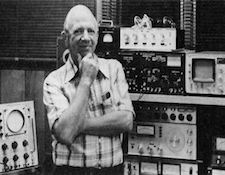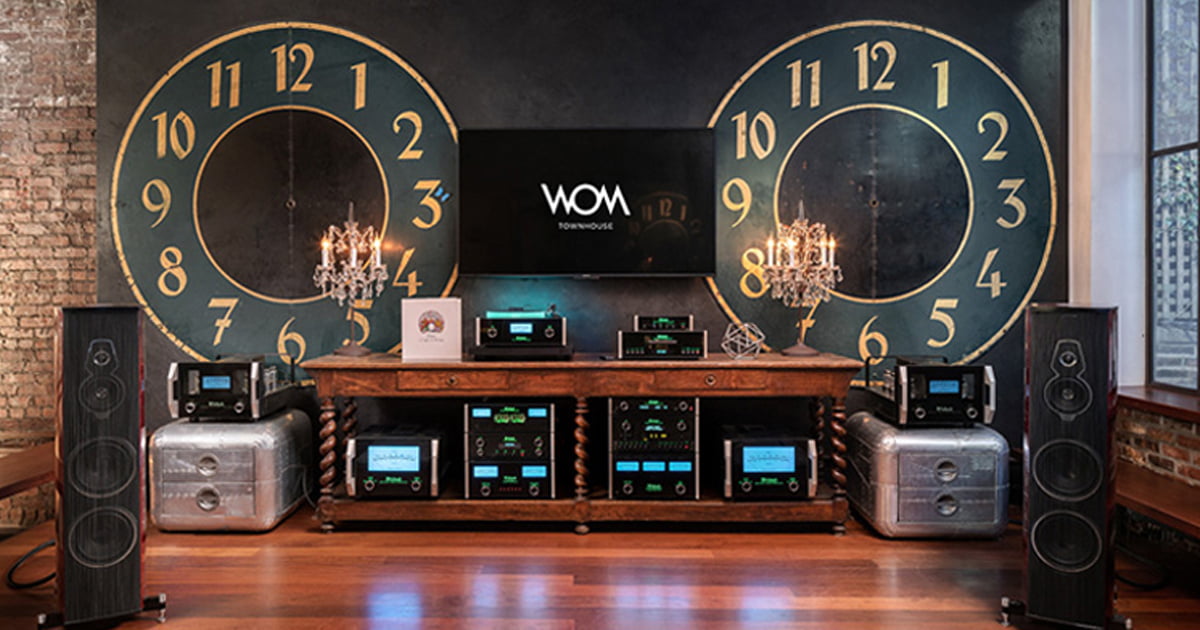It’s the time of year for saving money!
In Part 1 of this continuing series on audio reviews and reviewers I asked the question “Are Audio Reviews and Reviewers Really Necessary?” and concluded that they were, if only because there are so many possible combinations of the equipment available to us that, if equipment interactions affect the sound of our systems (as everybody, even the greatest troll, knows they do) we would have to listen to as many as TRILLIONS of possible combinations before we could make anything like an informed decision about buying our gear. Obviously that’s impossible, so sharing the listening task among many people instead of trying to do it all ourselves is not just a good idea, but clearly necessary.
 Then in Part 2 I wrote that the reviewing process doesn’t have to be formally conducted and it’s results don’t have to be published anywhere – not even a blog, but that any time anyone at all voices any kind of comment about the sound of a piece of audio equipment, that constitutes a review, and the person saying it is, for all practical purposes, a reviewer.
Then in Part 2 I wrote that the reviewing process doesn’t have to be formally conducted and it’s results don’t have to be published anywhere – not even a blog, but that any time anyone at all voices any kind of comment about the sound of a piece of audio equipment, that constitutes a review, and the person saying it is, for all practical purposes, a reviewer.
That makes just about everything we’ll ever say or hear about any piece of audio gear a “review”, and I wrote that “The only thing about a “review” that you should really be concerned about is whether you should believe it”, and went on to cite an example of one reviewer that I likely wouldn’t have believed, because — to judge by the two enormous hearing aids that he was wearing and the sound quality of the cassette that he had brought along as demo material – he was deafer than a bedpost and probably not qualified to make a recommendation. That introduced the whole issue of qualification and, after touching on it briefly and mentioning a few things that that it might result from, I said that I would go into it more deeply in this and subsequent installments of this continuing series.
Before doing that, though, I think it’s probably important to take a look at just exactly we’re talking about being qualified for. To put it most simply, that’s the evaluation of products to decide if they’re good, bad, or indifferent, and whether somebody ought to consider them for possible purchase. To me, what that requires is really three things: (1) We must be able to judge products’ performance; then (2) we must apply some standard for rating them; and finally, (3) we must be able to communicate what we have found and decided to other people in a way that they will be able to understand and benefit from. Let’s take at least an initial look at the first of those things now, and come back to it again later if it’s necessary.
 The most basic of the three requirements for good reviewing is the ability to experience a sampling of a product’s performance and, If you think about it, you’ll see that even that has its own sub-requirements: Unlike what appeared to be the case with that guy in that earlier example, you need, at least, to be able to hear what a thing sounds like well enough to be able to spot differences between it and other products. That does NOT mean that you have to have those “Golden Ears” that so many people seem to think essential to successful audio reviewing. After all, even Anthony H Cordesman (“AHC”), one of the top reviewers for the absolute sound, included people known to be hearing-impaired on the listening panel that helped him with his product evaluations, and he said that they made a worthwhile contribution. Also, on that same line, it’s no secret that Larry Kay, co-publisher of Fi Magazine and a regular reviewer for it, was profoundly deaf in one ear. Even so, he wrote cogent and expert reviews and even described stereo effects which he claimed to be able to hear because of compensating abilities that he was either blessed with or had had successfully worked to develop.
The most basic of the three requirements for good reviewing is the ability to experience a sampling of a product’s performance and, If you think about it, you’ll see that even that has its own sub-requirements: Unlike what appeared to be the case with that guy in that earlier example, you need, at least, to be able to hear what a thing sounds like well enough to be able to spot differences between it and other products. That does NOT mean that you have to have those “Golden Ears” that so many people seem to think essential to successful audio reviewing. After all, even Anthony H Cordesman (“AHC”), one of the top reviewers for the absolute sound, included people known to be hearing-impaired on the listening panel that helped him with his product evaluations, and he said that they made a worthwhile contribution. Also, on that same line, it’s no secret that Larry Kay, co-publisher of Fi Magazine and a regular reviewer for it, was profoundly deaf in one ear. Even so, he wrote cogent and expert reviews and even described stereo effects which he claimed to be able to hear because of compensating abilities that he was either blessed with or had had successfully worked to develop.
No matter how good your ears and listening skills may be, you’ll also need a decent “reference system” and a decent listening-room to play it in before you can hope to do a decent review. If your system doesn’t have sufficient range or resolution to expose the strengths and/or weaknesses of the products presented to you for review or if the system’s performance is there, but your room won’t allow you to hear it, nothing you write will ever be completely correct: Other than to complain about its absence (possibly falsely, if it it’s the fault of your room and not the product under review) you simply can’t write about what you can’t hear!
 Examples of equipment unsuitable for reviewing abound: One obvious one is, if you do your critical listening on mini-monitors lacking anything like serious bass, how can you possibly comment on the deep bass performance of an amplifier, preamp, or source product under review? And the basement “lab” of Julian Hirsch might provide the perfect example of the limitations brought on by an inadequate or unsuitable listening room. Hirsch was possibly the most famous audio writer of the last century and, starting in 1957, wrote some 4,000 reviews for such publications as Popular Electronics and Stereo Review. With facilities antedating stereo and set up primarily for measurement and having neither acoustic treatment of any kind or even any provision for proper speaker placement to get the best stereo effect, it’s entirely possible that his listening room was one of the reasons why his reviews concentrated on measurement and paid little, if any, attention to what things actually sounded like.
Examples of equipment unsuitable for reviewing abound: One obvious one is, if you do your critical listening on mini-monitors lacking anything like serious bass, how can you possibly comment on the deep bass performance of an amplifier, preamp, or source product under review? And the basement “lab” of Julian Hirsch might provide the perfect example of the limitations brought on by an inadequate or unsuitable listening room. Hirsch was possibly the most famous audio writer of the last century and, starting in 1957, wrote some 4,000 reviews for such publications as Popular Electronics and Stereo Review. With facilities antedating stereo and set up primarily for measurement and having neither acoustic treatment of any kind or even any provision for proper speaker placement to get the best stereo effect, it’s entirely possible that his listening room was one of the reasons why his reviews concentrated on measurement and paid little, if any, attention to what things actually sounded like.
Finally, to get a good sample of what a product can do, you also need to listen to enough of its performance on a broad enough spectrum of material, over a long enough period of time. Reviewing is sort of like reading MAD magazine in the old, old days, when there were tiny details lurking in every corner of every frame that you would simply not notice until you had read it many times (possibly even with the help of aa magnifying glass). If you don’t have enough exposure to the products you review, you WILL miss things.
Even if you have the ears and have the system and room necessary to do a reasonable evaluation and have spent enough time listening to enough of the right source material, if you want people to find your conclusions valuable and to use them as at least initial screening for their own equipment or system purchase decisions, you’re still going to have to know what things are supposed to sound like; to use that knowledge and your own personal tastes and preferences as the standard for your recommendations; and to be able to write or tell about your findings in a way that people will understand and want to know. I’ll be looking into just those things in the next installments of this series.
Hopefully, I’ll see you then.





